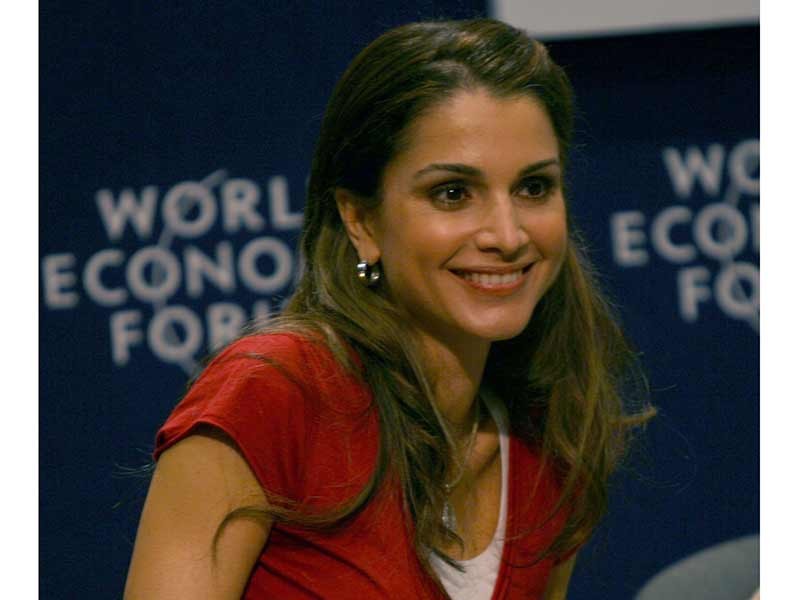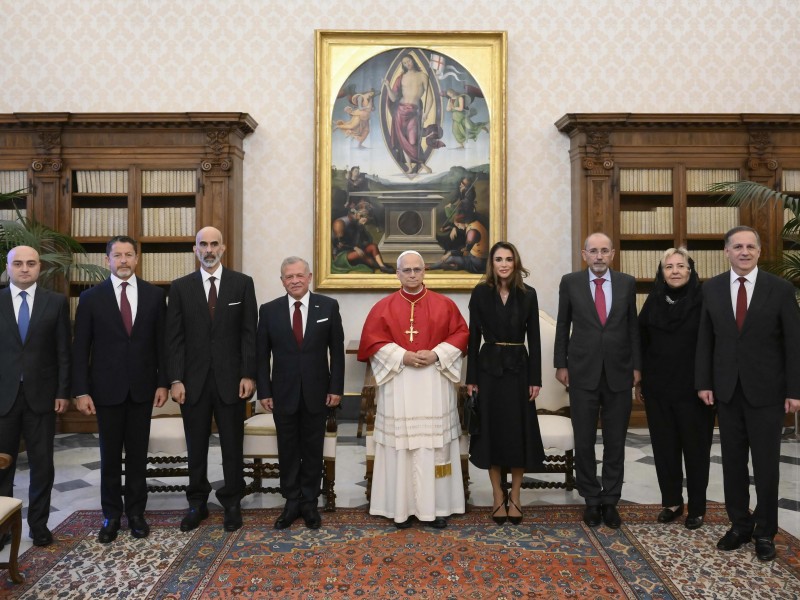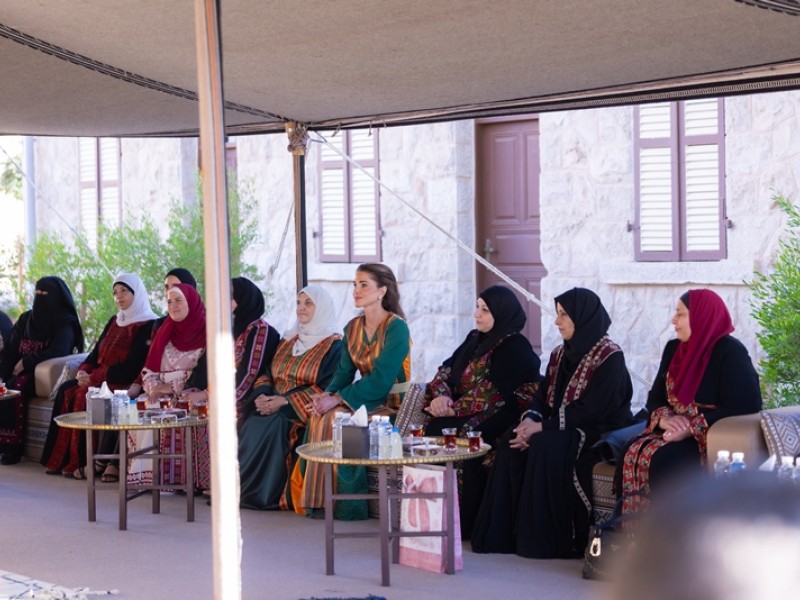Queen Rania Explores Social Empowerment and Civic Engagement with WEF Panel

(Office of Her Majesty – Press Department – Dead Sea) - Taking on an unlikely role as a moderator, Her Majesty Queen Rania Al Abdullah engaged a distinguished panel in discussing the move from charity to active giving at the World Economic Forum in the Dead Sea.
"Irrespective of where you have come from, there are people – whether it's across the street from you, on the other side of town, or over the border – who can use a helping hand," said the Queen as she welcomed the panelists in the session titled “Defining Global Citizenship: From Philanthropy to Activism.”
Queen Rania, who was sporting a t-shirt supporting the Join Red campaign, noted that the focus of the day's conversation was to address whether "that hand is a hand out, i.e. charity, or a hand to help them up, i.e. civic engagement."
The panelists included His Royal Highness Prince Turki Al Faisal Al Saud; Fadi Ghandour, President and CEO of Aramex; Omar Ghobash, Deputy CEO of Emirates Foundation; Barbara Ibrahim, Founding Director of the John D Gernhard Center for Philanthropy and Civic Engagement; and Carly Fiorina, CEO of the Fiorina Foundation and former CEO of Hewlett Packard (HP).
They spoke of their personal experiences in moving from charity to active giving and in promoting the ideal of philanthropy throughout their communities and beyond. They represented a broad range of sectors – from research institutes, to corporations, to philanthropic organizations.
Fiorina noted that her move from corporate philanthropy, during her days at HP, to engagement through her foundation allowed her to see the value of philanthropy through different view.
"At HP, we realized it was in our enlightened self-interest to be involved in helping communities and now that I'm involved in philanthropy as a private citizen, I know how personally rewarding it feels," she said.
Building on Queen Rania's statement that "charity is something that this region knows all about," Prince Turki noted that both charity and philanthropy are ingrained in the culture and religions of the Middle East. Islam, he pointed out, requires the paying of alms and raising other people's standards of living.
The difference between charity and philanthropy, they noted, was the personal engaged effort of the givers. "The difference between charity and activism," said Fiorna, "is [the difference] between money and time."
Ibrahim described a continuum where people can move from charity to thinking about development and then, further down the line, tackling strategic philanthropy.
"Charity is limited to meeting the immediate needs of the disadvantaged," she said in describing it as a consumable. "Strategic philanthropy is thinking about scale, looking at the origin of our problems and tackling their roots, and not placing a Band-Aid on top of them."
Focusing on the need for sustainable investments in society, Queen Rania said, "We need engaged giving. Up close and personal, because true community is about togetherness, collective responsibility, joint action. You cannot lift society with one hand, but you can raise it with many."
When asked why his company decided to get involved in philanthropic endeavors such as the Jabal il Natheef project, Ghandour said, "It's a story of entrepreneurs claiming their role in their societies. We are making a statement that the future of our region has to be decided by us also… we can't sit around for development to happen by somebody else."
The Natheef project, which Aramex initiated, includes other private sector companies, who are collectively known as "Entrepreneurs for Development." A video clip was played during the session to highlight the difference the development project has made to the community.
"We didn't want to prioritize their needs," noted Ghandour, "The community knew their needs and priorities already." The project started by developing a public school and succeeded once they engaged the community, and involved the youth. "It's not only about infrastructure, it's about infrastructure of the mind," said Ghandour.
Two young volunteers, who attended Saturday's panel, explained why they got involved and what they got out of it.
"I realized I had the capabilities to impact society," said Mohammad, "and I saw the impact I had when I helped younger kids learn." Sharihan, another volunteer relayed the feedback from her peers who she said genuinely enjoyed giving back to their communities.
The panelists all spoke of the impact youth can have on their societies through active philanthropic engagements. To utilize their potential, Ibrahim said that encouraging youth only needs a minimal push. "Interventions can be simple and fun," she said, "and [the youth] quickly learn that it is rewarding."
In closing the session, Queen Rania reminded the audience of executives, "you can do business and good in this world… so get out there and do it!"
Featured
Queen Rania's official website
This website does not support old browsers. To view this website, Please upgrade your browser to IE 9 or greater
Your browser is out of date. It has known security flaws and may not display all features of this and other websites. Learn how to update your browser



